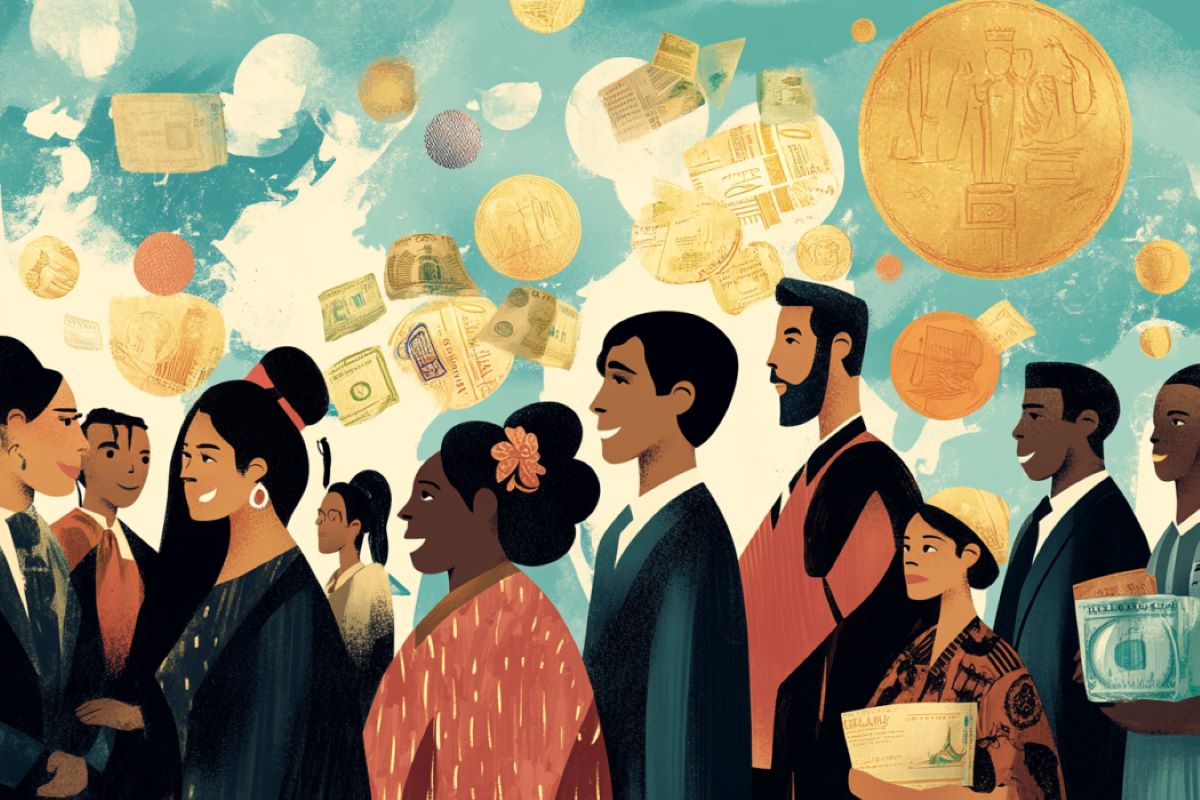Summary: New research shows that across diverse cultures, individuals with fewer material resources are consistently perceived as less trustworthy. The study spanned eight countries and uncovered a universal stereotype linking wealth to trustworthiness, even among those with low resources themselves.
These findings highlight the role of socioeconomic status in shaping stereotypes, alongside factors like gender and race. Recognizing this bias may encourage efforts to overcome it and promote social trust. Future research aims to explore how these stereotypes can be changed and their impact on discrimination.
Key Facts:
- Universal Stereotype: People with fewer resources are globally perceived as less trustworthy, regardless of the perceiver’s own wealth.
- Cross-Cultural Evidence: The stereotype exists across various countries, including both Western and non-Western societies.
- Implications for Inequality: Awareness of this bias may help address social trust issues and discrimination linked to socioeconomic status.
Source: Society for Personality and Social Psychology
New research in Social Psychological and Personality Science identifies a widespread stereotype linking wealth to perceived trustworthiness across diverse cultures.
The research, led by Mélusine Boon-Falleur from the Center for Research on Social Inequalities at Sciences Po in Paris, shows that individuals with fewer material resources are consistently viewed as less trustworthy.
The study, conducted across eight countries including Brazil, Colombia, Democratic Republic of Congo, India, France, Nigeria, Philippines, and the United Kingdom, employed a novel method to uncover stereotypes while avoiding social desirability bias.
“People with fewer resources are consistently perceived to be less trustworthy by people around the world, even among individuals who have few resources themselves,” states Dr. Boon-Falleur, summarizing the study’s most significant finding.
This research contributes to the broader academic discussion by highlighting the importance of socioeconomic background in shaping stereotypes, alongside well-known demographic attributes such as gender, age, or race.
It also emphasizes the need to consider both the characteristics of the person “doing the trusting” and the person being trusted when examining trust dynamics.
The implications of these findings are far-reaching.
“By becoming aware of this stereotype, people may try to overcome this bias, or put in place programs in their organization to counteract this,” Dr. Boon-Falleur explains.
She adds, “For people with low SES backgrounds, realizing that they may be perceived as less trustworthy could explain certain attitudes or behaviors towards them.”
In the context of current world events, the research suggests that deepening social inequalities in Western countries could lead to decreased social trust as poverty rates increase. It may also shed light on patterns of discrimination against certain migrant groups.
Dr. Boon-Falleur cautions against misinterpretation: “The main misrepresentation of these results would be to say that individuals with fewer resources are in fact less trustworthy rather than individuals with fewer resources are perceived to be less trustworthy. To date, there is no scientific evidence systematically showing that individuals with fewer resources are less trustworthy.”
One of the most striking aspects of the study is the universality of these stereotypes. “Often, we tend to think that highly capitalist countries or only Western countries have negative stereotypes towards certain groups,” Dr. Boon-Falleur notes.
“However, what we found in our study was that in all countries surveyed, including in places such as Goma (Democratic Republic of Congo), such stereotypes also exist.”
Future research will explore the malleability of these stereotypes and their potential behavioral implications. The study’s findings open new avenues for understanding and addressing socioeconomic biases in interpersonal trust on a global scale.
About this psychology research news
Author: Stephen Waldron
Source: Society for Personality and Social Psychology
Contact: Stephen Waldron – Society for Personality and Social Psychology
Image: The image is credited to Neuroscience News
Original Research: Closed access.
“HouseholdWealth is Associated With Perceived Trustworthiness in a Diverse Set of Countries” by Mélusine Boon-Falleur et al. Social Psychological and Personality Science
Abstract
HouseholdWealth is Associated With Perceived Trustworthiness in a Diverse Set of Countries
Interpersonal trust impacts societal and individual outcomes, affecting economic growth, democracy, and well-being.
Trust levels vary both within and across countries, raising the question of what factors influence interpersonal trust.
Existing research indicates that an individual’s socioeconomic status influences their level of trust, with wealthier individuals tending to be more trusting.
This article examines a further effect of wealth on interpersonal trust, namely whether people perceive wealthier individuals as more trustworthy.
Using a novel method for uncovering stereotypes while avoiding social desirability bias, we investigate whether wealth cues are associated with the perceived trustworthiness of targets.
Our study, conducted with diverse participants across different cultures (Brazil, Colombia, Democratic Republic of Congo, India, France, Nigeria, Philippines, and the United Kingdom), consistently demonstrates that wealthier targets are seen as more trustworthy.
This culturally widespread negative stereotyping of poorer individuals may contribute to observed patterns of interpersonal trust.








